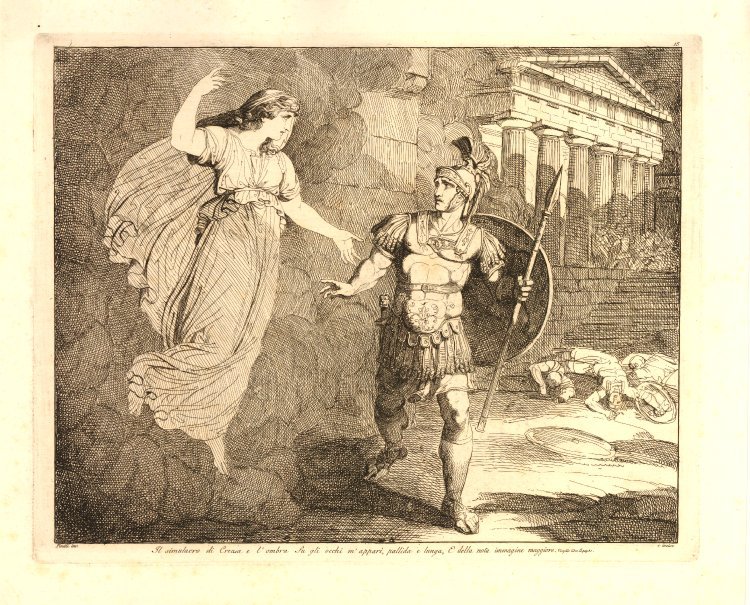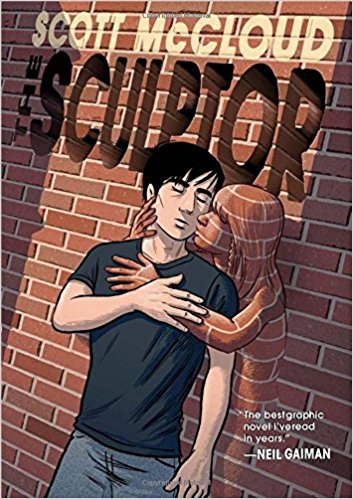On the surface, the notion of a haunted house may seem like a distinctly modern phenomenon. It’s certainly a convenient idea for local folktales. It’s all too easy for locals to point to an old abandoned house and attribute all manner of gruesome tragedies and spooky occurrences to the that dilapidated building. Similarly, it provides a straightforward plot and inexpensive setting for many low-budget horror films/shows (and, of course, higher quality productions like American Horror Story: Murder House). I suspect that it is through film and television that most of us are familiar with haunted houses nowadays.
However, tales of haunted houses exist throughout most historical periods, and we are fortunate to have two detailed stories from around the 1st/2nd century AD. The more general notion of ghosts inhabiting a specific place, such as tombs, was well established in the ancient world. It extends into the late antique world with the passages from John Chrysostom and Athanasius, which I’ve quoted in other posts. That thought seems to have drawn on the belief that a spirit was tied to the location of its former physical body, which will also be inherent in the both of these tales. The first of these haunted house tales comes from Lucian’s Lover of Lies, which was a satirical work on those who believed in the supernatural. This story comes in the context of a debate between whether or not ghosts exist. The narrator asks the wise Pythagorean Arignotos for his opinion on the matter. Arignotos proceeds to tell the following story of his own encounter with one:
“Yes, but if you ever go to Corinth,” said Arignotos, “ask where the house Eubatides is, and when it is pointed out to you beside the Cornel Grove, go in and tell the doorman Tibeios that you wish to see where the Pythagorean Arignotos exhumed the ghost and drove him away, rendering the house habitable from that time forth.”
“What was that, Arignotos?” asked Eukrates
“It had been uninhabited for a long time,” he said, “because of terrors, and if a person moved in, he quickly fled in panic, chased away by a frightful and a disturbing ghost of some sort. So the house was falling into ruin and the roof was collapsing, and there wasn’t a single person who had the courage to enter it.
“When I myself heard about this, I took my books – I have a very large collection of Egyptian books on these matters – and went into the house around bedtime, although my host tried to dissuade me and all but restrained me when he learned where I was going, which he thought was manifestly evil. Taking my lamp, I entered the house alone, and setting down the light in the largest room, I sat on the floor and began peacefully to read.
“The ghost stood by me, thinking an ordinary person had come and expecting to frighten me like the others. He had long hair and was squalid and darker than gloom. He stood by me and, hoping to overcome me, made trial of me by attacking me from all sides, turning now into a dog and then a bull and a lion. But I took matters into my own hands and, employing the Egyptian language, I charmed him into the corner of a dark room by means of the most horrifying incantation. After I saw where he sunk into the ground, I slept for the remainder of the night.
In the morning everyone had given up hope for me, thinking they would find me dead like the others, but to everyone’s surprise I emerged. I went to Eubatides with the good news that he could now reside in his house, which had been purified and freed of terrors. Then, taking him and many of the others along with me – they followed because of the surprising turn of events – I led them to the place where I had seen the ghost sink down, and told them to dig with mattocks and hoes. When they had done so, we found, buried around six feet down, a moldering corpse of which only the bones lay together in their proper arrangement. We exhumed it and buried it, and from that time on the house ceased to be troubled by ghosts.”
After Arignotos, a man of divine wisdom, whom everyone revered, related this event, there was no longer anyone present who did not condemn me for my gross foolishness in doubting these things, and all the more so because Arignotos was the narrator.
Lucian, Lover of Lies, 29-32, Tr. Hansen.
We see here a couple of references to the Egyptian language. Presumably, he learned about how to deal with such things from his “Egyptian books” and uses an incantation in Egyptian to subdue the ghost. This highlights the mystical value placed on the Egyptian language. For the Romans, this was a mystical language, believed to have a supernatural power due to its ancient prestige. It’s quite similar to how modern media often has the protagonist turn to an incantation or spell In Latin, which, from our perspective, is seen as old and mystical in the same manner. I also see here a parallel with the Life of Antony. Much like the ghost shapeshifting to different animals, Antony’s encounter with demons in the tomb has them take the form of many terrifying beasts (Life of Antony, 9).
 One of several instances of a ghost appearing in Greco-Roman literature, Aeneas encounters the benevolent ghost of his wife, Creusa, as he flees Troy, print by Bartolommeo Pinelli (1811).
One of several instances of a ghost appearing in Greco-Roman literature, Aeneas encounters the benevolent ghost of his wife, Creusa, as he flees Troy, print by Bartolommeo Pinelli (1811).
The second of our haunted house stories comes in a letter from Pliny the Younger. It is also set in the context of debating whether or not ghosts exist. He asks for his friend, Licinius Sura, to weigh in on the matter and describes a handful of ghost stories to him. This one of them:
“Now I want you to consider whether the following story, which I shall tell you just as I heard it, is not even more terrifying and no less wonderful than the other. There stood at Athens a spacious and roomy house, but it had an evil reputation of being fatal to those who lived in it. In the silence of the night the clank of iron and, if you listened with closer attention, the rattle of chains were heard, the sound coming first from a distance and afterwards quite close at hand. Then appeared the ghostly form of an old man, emaciated, filthy, decrepit, with a flowing beard and hair on end, with fetters round his legs and chains on his hands, which he kept shaking. The terrified inmates passed sleepless nights of fearful terror, and following upon their sleeplessness came disease and then death as their fears increased. For every now and again, though the ghost had vanished, memory conjured up the vision before their eyes, and their fright remained longer than the apparition which had caused it. Then the house was deserted and condemned to stand empty, and was wholly abandoned to the spectre, while the authorities forbade that it should be sold or let to anyone wishing to take it, not knowing under what a curse it lay.
The philosopher Athenodorus came to Athens, read the notice board, and on hearing the price hesitated, because the low rent made him suspicious. Then he was told the whole story, and, so far from being deterred, he became the more eager to rent it. When evening began to fall, he ordered his people to make him up a bed in the front of the house, and asked for his tablets, a pen, and a lamp. Dismissing all his servants to the inner rooms, he applied mind, eyes, and hand to the task of writing, lest by having nothing to think about he might begin to conjure up the apparition of which he had been told and other idle fears. At first the night was just as still there as elsewhere, then the iron was rattled and the chains clanked. Athenodorus did not raise his eyes, nor cease to write, but fortified his resolution and closed his ears. The noise became louder and drew nearer, and was heard now on the threshold and then within the room itself. He turned his head, and saw and recognised the ghost which had been described to him. It stood and beckoned with its finger, as if calling him; but Athenodorus merely motioned with his hand, as if to bid it wait a little, and once more bent over his tablets and plied his pen. As he wrote the spectre rattled its chains over his head, and looking round he saw that it was beckoning as before, so, without further delay, he took up the lamp and followed. The spectre walked with slow steps, as though burdened by the chains, then it turned off into the courtyard of the house and suddenly vanished, leaving its companion alone, who thereupon plucked some grass and foliage to mark the place. On the following day he went to the magistrates and advised them to give orders that the place should be dug up. Bones were found with chains wound round them. Time and the action of the soil had made the flesh moulder, and left the bones bare and eaten away by the chains, but the remains were collected and given a public burial. Ever afterwards the house was free of the ghost which had been thus laid with due ceremony.”
Pliny the Younger, Letter 7.27, Tr. Firth.
These two tales are remarkably similar. They both feature a learned philosopher, who projects a boundless confidence in a terrifying situation. It is fitting that the former is accosted, while he is reading and the latter, while he is writing. This sense of invulnerability will also carry over to Christian hagiographies, in which saints confront demons and other evils fearlessly and effortlessly drive them away. Both houses are also cleansed once a proper burial is made, presumably allowing the spirit to finally rest.
These stories though differ greatly in their overall tone. Pliny’s tale is certainly more comical in the way the ghost approaches Athenodorus. It wants to willingly show the wise man where his corpse is so that he may be exhumed. However, Athenodorus is apparently in no rush and motions for the ghost to be patient, while he finishes up his writing. Personally, I find that hilarious. On the other hand, Lucian’s ghost is much more aggressive. It attacks Ariginotos and wants to kill him and must be forcefully be restrained with magic. Perhaps, this is reflective of diverse ideas of the motives for such spirits. Were they believed to be bloodthirsty entities intent only on causing death? Or did they merely seek an escape from being trapped in the mortal world?
Further reading:
Hansen (2017), The Book of Greek and Roman Folktales, Legends, and Myths, 121-123.
Ogden (2007), In Search of the Sorcerer’s Apprentice: The Traditional Tales of Lucian’s Lover of Lies, 205-224.
Advertisements Share this:




